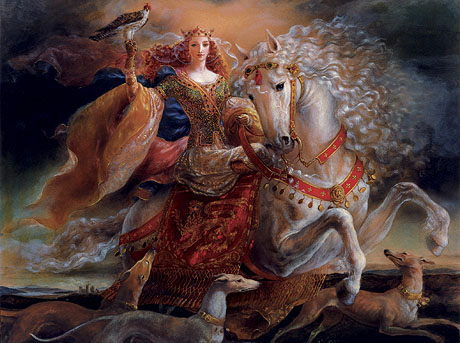First of all, since I missed class yesterday, if any or all of this was talked about, I’ll shut up and color (although i always had a hard time staying inside those damn lines). From what I’ve read on the blog, it seems like some of y’all are noticing the high level of violence in the Lancelot reading, and thinking that the violence itself is the significant part of the reading. The problem with this is that we’re reading it from a 20th century point of view, from a world in which we are removed from death, and where real violence is something most of us have/will never see. This is not the case for the original audience of Lancelot.
The middle ages were a time of constant warfare (hell, the English and French fought over the same chunks of land for over 100 years), high infant mortality, and rampant disease. As such, death was a very real part of life, and a consequence of that was killing wasn’t really such a big deal. If you had to kill someone – over honor, property, for your country, whatever – you did it because you had to, and that was that. So when the lady asks for the offending knight’s head, it isn’t that she’s a bloodthirsty sociopath. It’s that seeing your foe’s head was a surefire way to ensure that he/she was dead, since you’d have a hard time faking that particular proof.
It’s also not that these people in the story had a hard-on for killing. From our perspective, it seems like their only way of solving any problem is to kill something. This too is a flaw of our particular vantage. Think for a minute, that you live in a world where there is no real court of law. Where there was no police force to keep the peace, and where the strong simply have their way with the weak. This is the world of the middle ages, and as such, physical violence was the favorite way to settle disputes simply because there was no other alternative. If a brigand was strong-arming a village into paying “protection” money, you couldn’t call the FBI to stop him. You had to make him stop yourself, and you had to use the only language he understood: you had to show him that you were stronger than he.
It is for these reasons that the world of Lancelot is one so brutish. For example, if you wanted to send your enemy a message, this is how you did it:

Also, happy Fuck the British Day.

(I couldn’t resist showing an “Oriental” view of America. If it offends anyone, just let me know and I’ll take it down)


